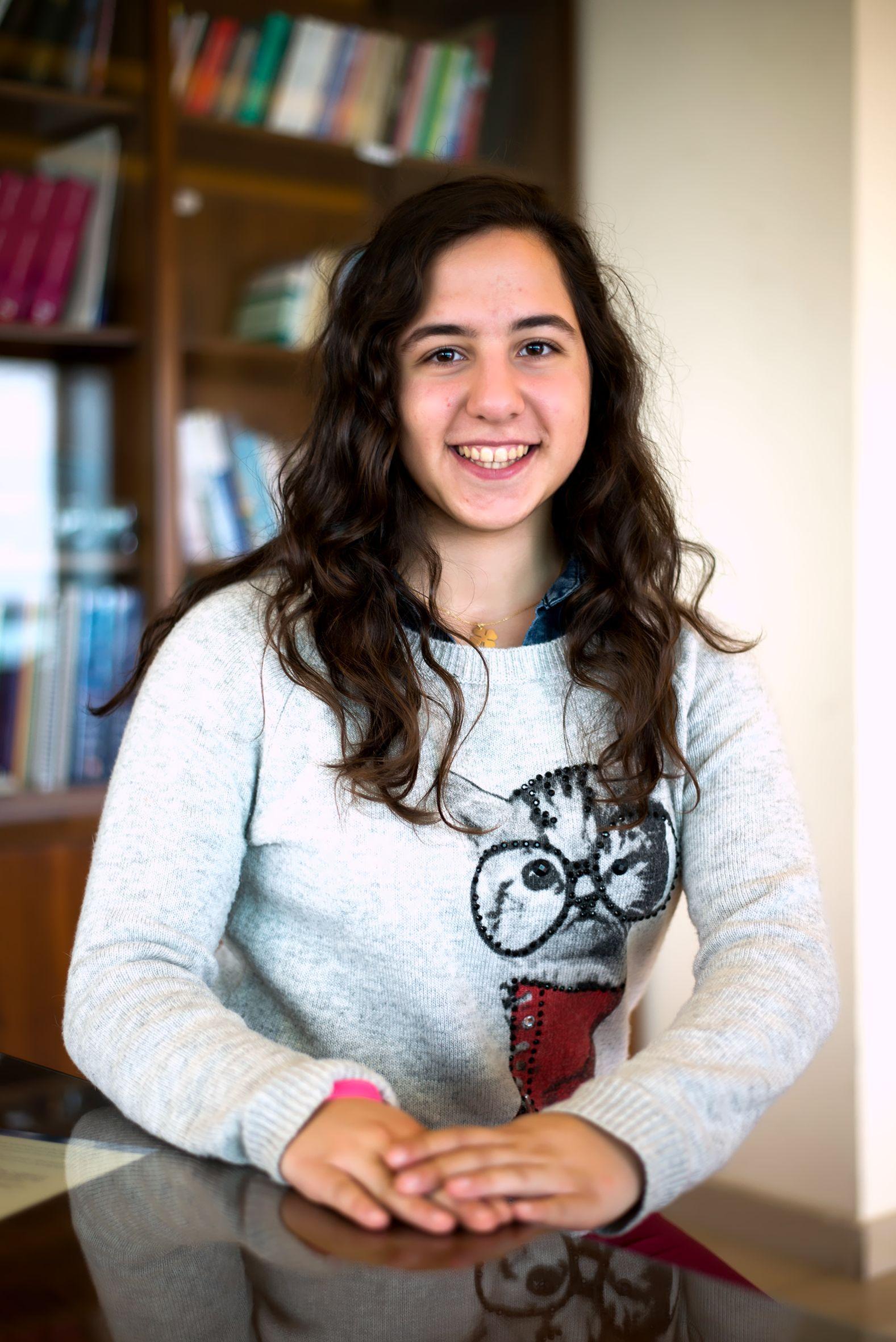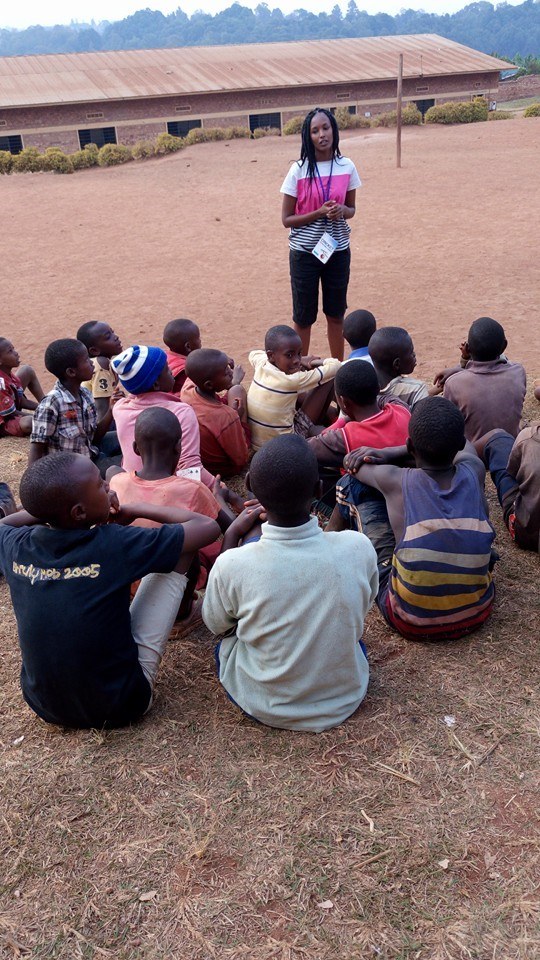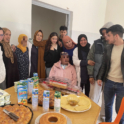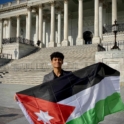Maryame has taken the lessons learned from her exchange year to make a difference in her community.
STORIES
Sports for Development and Peace - Alumni Spotlights!

For many YES students, sports are a way to connect to their host communities. They build special bonds with teammates, develop greater self-awareness and self-efficacy, and discover ways that sports can help people grow as individuals and groups. In some cases, YES alumni bring that learning back to their home countries where they commit themselves to a growing and highly dynamic field - Sports for Development and Peace (SDP).
Thirty such YES alumni will be coming to Kuwait in April to celebrate the International Day of Sport for Development and Peace (April 6th) and to further develop their skills at the YESDP workshop.
Leading sessions at this workshop will be four alumni participants who have especially strong commitments to this topic, in different and complementary ways. We're excited to present them to you!
Hiba Antoun (YES 2013 - 2014, Lebanon, hosted by AYA in Kansas City, MO)

As a young girl in Lebanon, Hiba started her athletic career in Taekwondo, in which she earned a red belt, and by dancing ballet. She later switched to soccer, basketball, jogging, and even ping pong! Hiba has thrived in various local and national competitions and evolved into various leadership roles, including founding a basketball team in her village and captaining the futsal team at her University.
Hiba says, "I have always believed in the power of sport in bringing people together and finding common ground. However, I never experienced this on a personal level before going to the US as an exchange student. The first step to overcoming my culture shock was joining a sports team."
As part of the cheerleading and soccer teams in her host community, Hiba learned, "A team is like a family. We either stand together and succeed, or we stand as individuals and fail." She credits her experiences playing sports on the YES program with making her a more caring person who looks at the people around her as teammates.
Now, Hiba is a monitoring and evaluation officer on an international development project in her home country. She works on a team that uses sport and art to engage Syrian, Lebanese, and Palestinian youth and create greater social cohesion. At YESDP, Hiba will speak to those experiences and will train her peers on how to create successful monitoring and evaluation plans for their follow-on projects.
Leah Tesfamariam (YES 2009 - 2010, Kenya, hosted by ACES in Toledo, OH)

Leah has experience in an extremely wide range of sports including long distance running, competitive jump roping, cricket, and a traditional east African sport called boneza ball. It was on the YES program that Leah first saw how sports could be used for social good. A YES student from Mozambique taught her about jump roping, and together they created a jump rope club in their host community to raise funds for projects including an environmental clean up campaign.
Leah explains, "The jump rope project gave us the opportunity to bond with our host communities and with other exchange students. I realized through sports people build trust and bridges between people. It taught me innovative ways to set an agenda on community issues, which led to my project using cricket to educate Rwandans on HIV/AIDs."
Now, Leah started the Bold Africa Foundation to continue such projects. Her latest SDP achievement has been the Boneza Ball for Persons with Disabilities project. Leah learned of a traditional sport in Rwanda that is especially effective at incorporating people with disabilities, and she is incorporating it into her home community in Kenya.
At YESDP, Leah will speak to her wide range of experiences, especially using alternative or non-mainstream sports and how to select the right sport for specific development objectives. She will also share her understanding of how sports can be used for health outcomes.
Ljupce Stojanov (YES 2012 - 2013, Macedonia, hosted by AYA in Kansas City, MO)

A soccer player himself, Ljupce developed a passion for SDP while volunteering with the Special Olympics as a YES student. He says, "I will never forget my first basketball practice with the Special Olympics team in Kansas City. I was so touched by the way I was welcomed and later accepted that I couldn't wait for my next practice to come. My experience with the Special Olympics team made me think about what kind of life and activities people with disabilities have in Macedonia, so I planned a project for two years and applied for the Alumni Engagement Innovation Fund (AEIF) grant."
Ljupce won the AEIF grant! He led the Special Basketball School for over 150 kids with disabilities in four cities in Macedonia. Ljupce's AEIF project included more than 150 volunteers and lasted 18 months. And he's not stopping there. Ljupce's plan is to scale his project up even larger, with the ultimate goal of creating new norms in Macedonia for able-bodied kids to engage with kids with disabilities.
At YESDP, Ljupce will train his fellow alumni on how to engage people with disabilities in their own SDP projects. He will also provide tips on how to write proposals in order to raise funds.
Deema Said (YES 2010 - 2011, West Bank, hosted in Eugene, OR)
You may have seen our final alumni presenter on TV, as she hosts a televised sports program! Deema is also a soccer player on the Palestinian women's national team, captain of her local soccer club, and a coach for girls at the Al-bireh soccer academy. She is a very busy athlete!
Deema had a hard time fitting in to her host community in the US, and she found the one thing that helped her the most was joining the soccer team. She says, "Thanks to soccer I was able to make friends and connections a lot quicker and I experienced the strength of sports first hand. That experience had a huge impact on me as an athlete and a person and it drove me to be involved in sports development when I came back to Palestine, especially for females."
She adds, "I believe that sport is an international language and it brings people together. In many ways it is also a way to express human emotions in a positive way, especially Palestinians who suffer from many unusual circumstances that cause fear, anger, violence, and instability. Sports is the right path for Palestinian girls; it can be their getaway from all those negative factors and can help them concentrate their energy to be used in a positive way."
At YESDP, Deema's presentation will be focused on sports for gender empowerment. She will also train the participants on how to engage media in the project they are preparing for their home communities.





